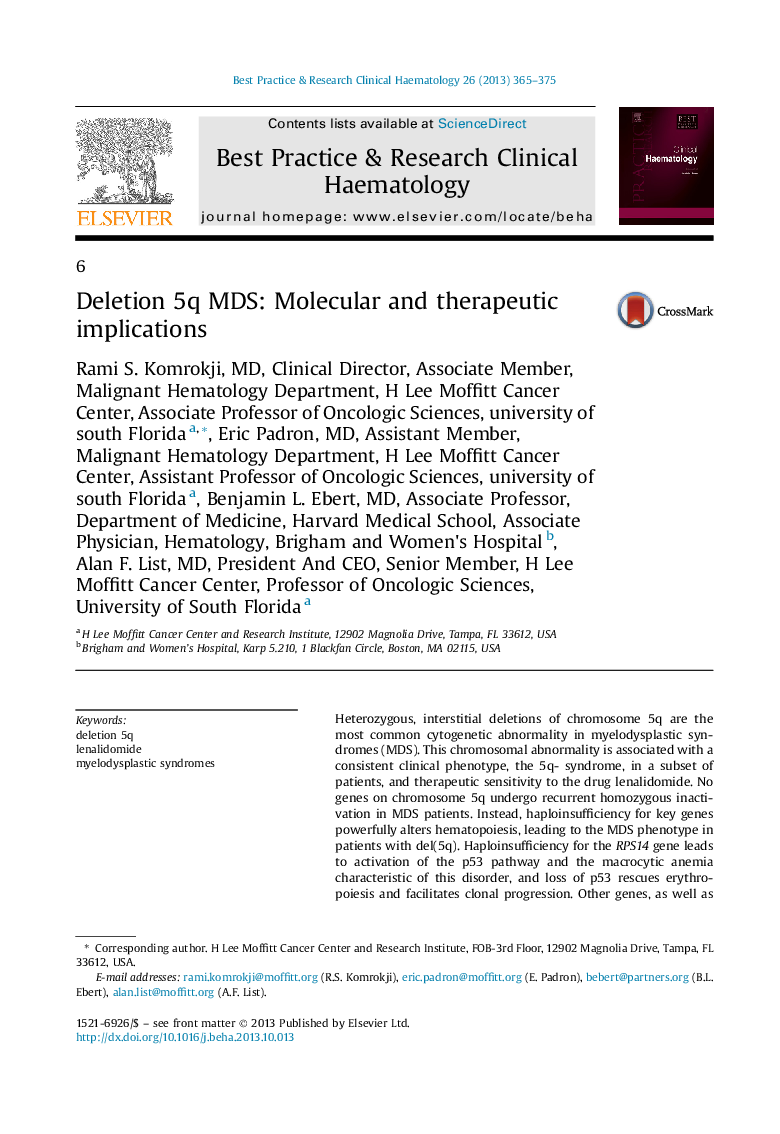| کد مقاله | کد نشریه | سال انتشار | مقاله انگلیسی | نسخه تمام متن |
|---|---|---|---|---|
| 2100126 | 1082982 | 2013 | 11 صفحه PDF | دانلود رایگان |

Heterozygous, interstitial deletions of chromosome 5q are the most common cytogenetic abnormality in myelodysplastic syndromes (MDS). This chromosomal abnormality is associated with a consistent clinical phenotype, the 5q- syndrome, in a subset of patients, and therapeutic sensitivity to the drug lenalidomide. No genes on chromosome 5q undergo recurrent homozygous inactivation in MDS patients. Instead, haploinsufficiency for key genes powerfully alters hematopoiesis, leading to the MDS phenotype in patients with del(5q). Haploinsufficiency for the RPS14 gene leads to activation of the p53 pathway and the macrocytic anemia characteristic of this disorder, and loss of p53 rescues erythropoiesis and facilitates clonal progression. Other genes, as well as miR-145 and miR-146a, contribute to aberrant megakaryopoiesis and a selective advantage for the del(5q) clone. The integrated effects of haploinsufficiency for these key genes, in aggregate, lead to the full phenotype of the disorder.
Journal: Best Practice & Research Clinical Haematology - Volume 26, Issue 4, December 2013, Pages 365–375